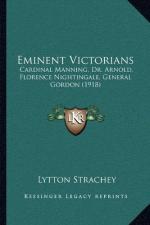|
This section contains 7,885 words (approx. 27 pages at 300 words per page) |

|
SOURCE: "Florence Nightingale's Feminist Complaint: Women, Religion, and Suggestions for Thought," in Signs: Journal of Women in Culture and Society, Vol. 6, No. 3, Spring, 1981, pp. 395-412.
In the following essay, Showalter investigates Nightingale's relationship to nineteenth-century feminism, using both psychological evidence and that of Nightingale's Suggestions for Thought to Searchers after Religious Truth.
Historians have often had to admit sadly that Florence Nightingale could not be counted among the great English feminists, saying, as historian Ray Strachey does, that she had "only an incomplete and easily exhausted sympathy with the organized Women's Movement."1 Nightingale vehemently refused to join John Stuart Mill's women's suffrage committee; she was notoriously critical of female ignorance, laziness, incompetence, and lack of moral purpose.2 And yet the new women's history, which in many ways has made our definitions of feminism more rigorous and exacting, has also expanded our sympathy with the varieties of nineteenth-century feminist...
|
This section contains 7,885 words (approx. 27 pages at 300 words per page) |

|


